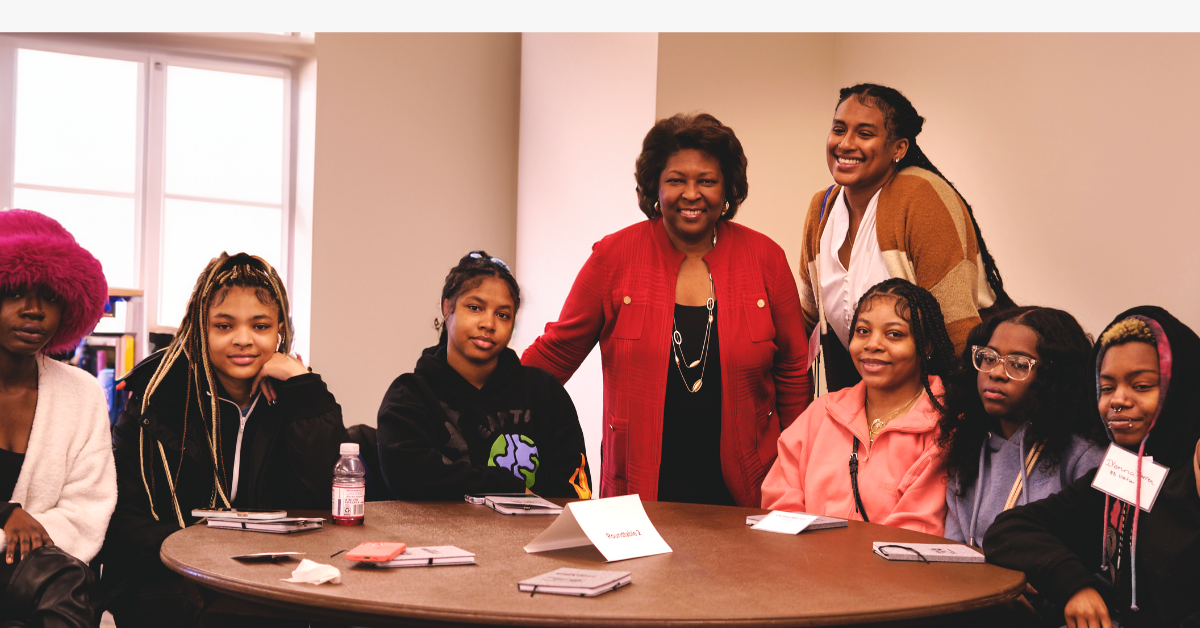It’s Not Too Late to Take Advantage of Free Tax Services and Possibly Earn Larger Refunds
Apr 08, 2024
by Ian Gordon

Tax Day 2024 is fast approaching, but there is still time to meet with the free tax advisors at one of our five Financial Empowerment Centers. And to illustrate just how impactful that no-cost tax advice can be, let me introduce (or reintroduce) you to ALICE – a United Way acronym for Asset Limited, Income Constrained, Employed that represents the nearly 500,000 low- and moderate-income households in the National Capital Area earning more than the Federal Poverty Level (FPL), but less than our region’s basic cost of living.
ALICE is a family of four living in Largo, Maryland, or Alexandria, Virginia – two children being raised by two parents who are working full-time in retail sales and hospitality services and earning a combined annual income of $75,000.
While this ALICE family’s annual income is $48,500 above the Federal Poverty Level (FPL) of approximately $26,500 annually, it is almost $27,000 short of Maryland and Virginia’s Household Survival Budgets of $101,760 and $101,913, respectively. (Household Survival Budgets encompass what’s needed to cover housing, child care, food, transportation, health care, and other basic needs – essentially the bare minimum.)
Even if this ALICE family moved to D.C., they’d still be almost $18,000 short of D.C.’s Household Survival Budget of $92,736.
Beyond the family previously described, ALICE is a single parent with children or a single person living alone – all working households struggling to make ends meet. Spanning all races, ages, ethnicities, and abilities, ALICE is your neighbor, your friend, your relative, or your coworker –all working full-time hours but struggling to make ends meet.
For Maryland, including Prince George’s County and Montgomery County, ALICE data shows that the total number of financially insecure households rose by 7.5% between 2019 and 2021 – in line with the 7% increase in the overall population. That means ALICE households increased by 1,777 during that time and, for many families struggling to stay afloat, an additional 17,172 families fell into poverty.
Things in the District were more dire. ALICE data shows that the total number of financially insecure households rose by 16% in D.C. between 2019 and 2021 – nearly double the 10% increase in the District’s overall population. That means the number of ALICE households increased by 8,241 during that time and an additional 10,134 families fell into poverty.
In Virginia, ALICE data shows that the total number of financially insecure households fell by 4% between 2019 and 2021 – contrasting the area’s overall population increase of about 3%. While ALICE households decreased by 8.5%, 15% of families fell into poverty.
We highly encourage ALICE households with an annual income of less than $64,000 to visit or call one of our FECs in the coming days to learn more about free Volunteer Income Tax Assistance (VITA). Our trained and qualified IRS tax professionals can determine if you qualify for the Earned Income Tax Credit (EITC), which supports the imbalances of the tax system.
Through the EITC, individuals who earn significantly less than others can receive a financial boost through larger tax refunds to support their households. The amount of EITC is based on income, filing status, and the number of qualifying children.
According to the IRS, in 2022, 43,000 D.C. residents claimed EITC, earning an average of $2,446; 359,000 Maryland residents claimed EITC, earning an average of $2,428; and 512,000 Virginia residents claimed EITC, earning an average of $2,455.
Communities of color, women, and immigrants are often overrepresented within underpaid and low-wage sectors. For example, 47% of black households and 42% of Hispanic households in the national capital area live below the ALICE threshold.
EITC is vital because it can lift a larger share of communities of color above the poverty line, yet the IRS estimates that 20% of tax filers don’t claim their EITC benefit. That makes EITC crucial for advancing equity.
United Way NCA’s FECs and VITA program exemplify how the organization is convening community partners and resources to reduce the number of ALICE households and advance economic opportunities – especially for Black and Brown communities.
Here at United Way NCA, we truly believe that when none are ignored, all will thrive. We think everyone should have equitable access to financial professionals with the know-how to maximize their tax credits, help them receive the largest tax refund possible, and guide them on the best ways to use those funds to pay off debt, purchase a vehicle to get back and forth to work, invest in a home, or contribute to generational wealth that can transform their futures.
We look forward to helping more people take the credits they’re entitled to this tax season. Community members can learn more about United Way NCA’s FECs and VITA program by visiting unitedwaynca.org/financial-empowerment-center/.
About the author: Ian Gordon is the Vice President of Community Impact and Engagement for United Way of the National Capital Area.

